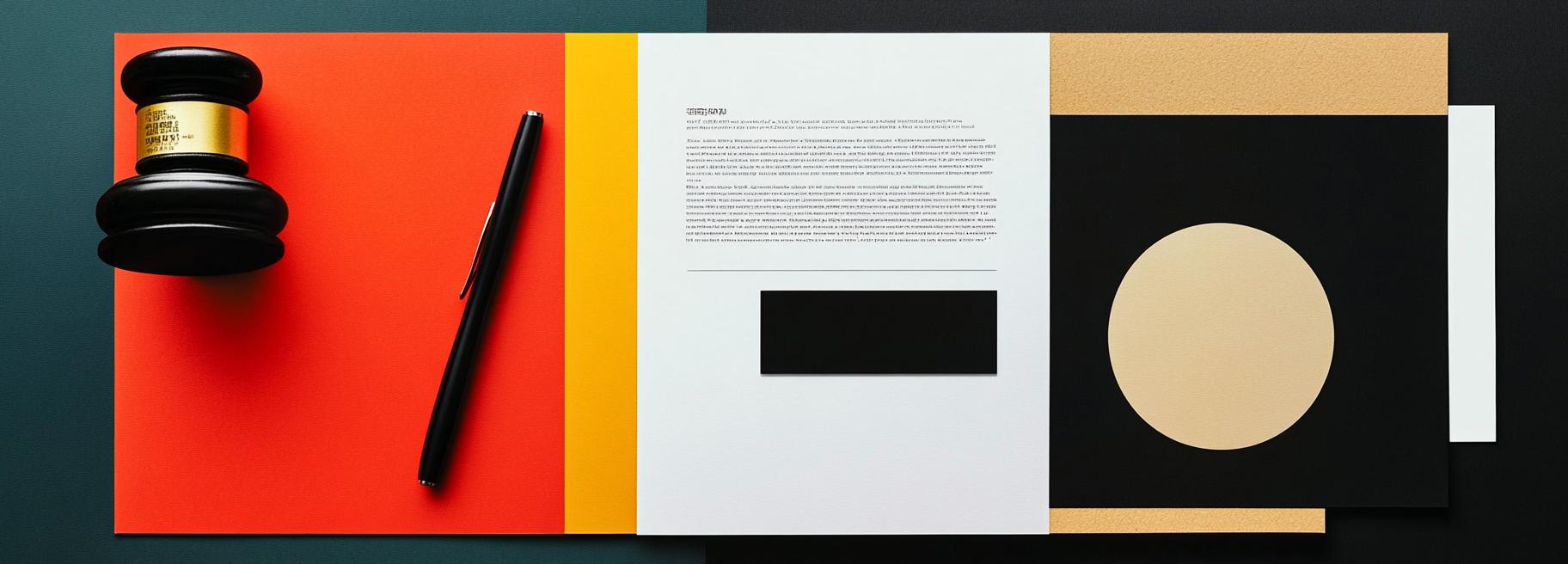Navigating the complexities of legal and financial decisions can be daunting, especially when unforeseen circumstances arise. A power of attorney (POA) stands as a crucial legal tool that empowers individuals to designate someone they trust to make decisions on their behalf. Whether it’s managing finances, healthcare, or personal affairs, a POA ensures that one’s wishes are respected and executed, even when they’re unable to do so themselves.
Understanding the nuances of a power of attorney is essential for anyone looking to safeguard their future. With various types and specific legal requirements, knowing how to establish and utilize a POA can provide peace of mind and security. This article delves into the intricacies of power of attorney, exploring its significance, types, and the steps involved in setting one up. By grasping these fundamentals, individuals can make informed decisions and protect their interests effectively.
Understanding Power of Attorney
A power of attorney (POA) is a legal document that grants a designated individual, called an agent or attorney-in-fact, the authority to act on behalf of another person, known as the principal. The key purpose of a POA is to ensure that an individual’s personal, financial, or medical decisions can be managed effectively, especially when they are unable to do so themselves.
Types of Power of Attorney
- General Power of Attorney: Provides the agent with broad powers to handle financial and business matters. For example, an agent can manage bank accounts and buy or sell property.
- Durable Power of Attorney: Remains effective even if the principal becomes incapacitated. This type is crucial in managing ongoing financial matters during periods of illness or incapacitation.
- Limited Power of Attorney: Grants the agent-specific powers for a particular task or transaction. For instance, an agent might be authorized solely to sell a specific property.
- Medical Power of Attorney: Allows the agent to make healthcare decisions for the principal. This includes medical treatments and care preferences when the principal cannot communicate their wishes.
Legal Requirements and Considerations
Establishing a power of attorney involves several legal requirements:
- Principal’s Capacity: The principal must understand the implications of granting a POA when signing the document.
- Notarization and Witnesses: Many states require the POA to be notarized or witnessed to ensure its validity.
- Agent Selection: Choosing a trustworthy and capable agent is critical, and alternates should be considered in case the primary agent is unavailable.
- State Laws: POA regulations vary by state, so understanding local laws helps ensure compliance and enforceability.
Establishing a POA provides individuals with a legal safeguard, ensuring their affairs are managed according to their wishes.
Types of Power of Attorney
Power of attorney (POA) documents come in various forms, each tailored to the principal’s needs and the scope of authority granted to the agent. Understanding these types helps ensure the chosen POA aligns with specific requirements.
General Power of Attorney
General Power of Attorney provides broad powers to the agent. It covers financial and business transactions, purchasing life insurance, settling claims, and operating a business. This type ceases if the principal becomes incapacitated or passes away.
Durable Power of Attorney
Durable Power of Attorney remains effective even if the principal becomes incapacitated. Crucial for long-term planning, this POA allows the agent to continue making decisions if the principal can no longer do so. It requires explicit language stating its durability.
Special or Limited Power of Attorney
Special or Limited Power of Attorney restricts the agent’s authority to specific tasks or time periods. Examples include signing a property deed or handling a single transaction. Once the task is completed or time expires, this POA ends.
Medical Power of Attorney
Medical Power of Attorney authorizes the agent to make healthcare decisions for the principal. It’s activated when the principal cannot make medical decisions independently. This POA includes details about treatment preferences and should comply with state laws.
Importance of Having a Power of Attorney
A Power of Attorney (POA) plays a crucial role in safeguarding an individual’s interests when they are unable to do so themselves. It ensures that someone trusted can manage financial, healthcare, and personal matters, providing a sense of preparedness and continuity.
- Financial Protection: A POA allows an agent to handle finances, pay bills, and manage investments when the principal is unable to make decisions. This capability prevents financial mismanagement or delays, securing the principal’s financial stability.
- Healthcare Management: Medical decisions are vital, especially when the principal is incapacitated. A Medical POA empowers an agent to make necessary healthcare choices, ensuring the principal’s wishes are followed even if they cannot communicate them.
- Legal and Administrative Efficiency: Without a POA, families may face lengthy court procedures to gain authority to act on behalf of incapacitated loved ones. Establishing a POA streamlines the process, reducing legal complexities and saving time and resources.
- Personal Autonomy: Having a POA respects the principal’s autonomy by honoring their choice of who makes decisions. Designating a trusted agent ensures the principal’s values and preferences guide all actions taken on their behalf.
- Peace of Mind: Knowing there’s a POA in place offers reassurance for both the principal and their family. It reduces uncertainty and stress, helping everyone involved feel more secure about future eventualities.
A clearly defined POA supports individuals in maintaining control over their affairs, even in unforeseen situations. Regular review and updates to the POA ensure that it continues to reflect the principal’s current needs and preferences.
How to Create a Power of Attorney
Creating a Power of Attorney (POA) involves careful planning and adherence to legal processes to ensure it effectively serves the intended purpose. Understanding the steps can help simplify this legal undertaking.
Choosing the Right Agent
Selecting the right agent is crucial to the POA’s effectiveness. An agent or attorney-in-fact acts on the principal’s behalf, making it imperative to appoint someone trustworthy. Consider the agent’s reliability, relationship to the principal, and ability to manage responsibilities under the POA. Evaluating these factors ensures the agent aligns with the principal’s interests and preferences. Consult potential agents to confirm their willingness and ability to serve.
Legal Requirements and Procedures
Adhering to legal requirements safeguards the POA’s validity. Each state defines its own rules, so the principal should ensure compliance with specific laws. Legal capacity stands as a primary requirement, demanding the principal comprehend the scope and implications of granting a POA at the time of signing. Many states necessitate notarization or witness signatures to authenticate the document. Consulting a legal professional can provide guidance and ensure the POA meets all pertinent legal standards. Regularly review and amend the POA to reflect any changes in circumstances or intentions.
Common Misconceptions About Power of Attorney
Many misunderstand the role and scope of a Power of Attorney (POA). These misconceptions often lead to confusion and misapplication in important decisions.
- Universal Authority: Some believe a POA grants unlimited power, but an agent’s authority is restricted by the type outlined (e.g., General, Durable). For instance, a Limited Power of Attorney only allows the agent to perform specific tasks.
- Irrevocable Nature: It’s assumed a POA is irreversible, yet the principal can revoke it anytime, provided they’re mentally competent. Revocation procedures, however, must follow legal protocols to ensure invalidation.
- Posthumous Validity: A common misconception is that a POA remains valid after the principal’s death. It actually ceases immediately upon death, transferring authority to executors or successors named in a will.
- Healthcare Authority: Some think a general POA includes healthcare decisions, but medical decisions require a specific Medical Power of Attorney. Without it, agents lack the authority over medical choices.
- Original Documents: People often think they must produce original documents for POA actions, yet certified copies may suffice, depending on the entity involved. Knowing local legal requirements is vital.
Clarifying these misconceptions ensures a POA serves its intended purpose effectively, safeguarding the principal and ensuring their wishes are respected.
Discover the Power of BlueNotary:
Integrate your Business, Title Company, or Law Firm to Satisfy your Customers and Decrease Turnaround
Get a document Notarized/Sign-up
Join the Free Notary Training Facebook Group
Conclusion
Establishing a power of attorney is a vital step in securing one’s future and ensuring that personal wishes are respected. By understanding the various types of POAs and adhering to legal requirements, individuals can effectively appoint a trusted agent to manage their affairs. This proactive approach not only offers peace of mind but also provides a safeguard against unforeseen circumstances. It’s essential to choose a reliable agent and regularly review the POA to adapt to any changes in life. With the right planning and legal guidance, a POA can be a powerful tool in protecting one’s interests and providing clarity for loved ones.
Frequently Asked Questions
What is a Power of Attorney (POA)?
A Power of Attorney (POA) is a legal document that authorizes another person to make decisions on your behalf. This person, known as the agent or attorney-in-fact, can manage finances, healthcare, or personal matters, especially when you are unable to do so yourself.
What are the types of Power of Attorney?
The main types of Power of Attorney are General, Durable, Limited, and Medical. General POA provides broad powers; Durable POA remains in effect if incapacitated; Limited POA covers specific tasks; Medical POA allows healthcare decision-making for the principal.
How does a Durable Power of Attorney differ from a General Power of Attorney?
A Durable Power of Attorney remains in effect even if the principal becomes incapacitated, making it ideal for long-term planning. In contrast, a General Power of Attorney ceases if the principal becomes incapacitated or passes away.
What is the importance of selecting the right agent for a POA?
Choosing the right agent ensures that your affairs are handled responsibly and in line with your wishes. The agent should be trustworthy, reliable, and capable of managing the given responsibilities, as they will act in your best interest.
Are there any legal requirements needed to establish a POA?
Yes, legal requirements for a POA include the principal’s capacity to understand the POA, notarization or witness signatures, and compliance with state-specific laws. Consulting a legal professional can help ensure all requirements are met.
Can a POA be revoked?
Yes, a principal can revoke a POA at any time as long as they are mentally competent. It’s important to communicate any revocation clearly to the agent and relevant parties involved.
Does a POA cover healthcare decisions?
Healthcare decisions require a Medical Power of Attorney, which explicitly authorizes an agent to make healthcare choices for the principal when they are unable to do so themselves.
Is a POA valid after the principal’s death?
No, a POA ceases to be valid upon the principal’s death. After death, the authority typically passes to the executor or personal representative of the estate, as per the will or probate process.
What should be considered when creating a POA?
When creating a POA, carefully plan the type of POA, select a suitable agent, comply with legal requirements, and consider future updates or amendments to reflect changes in circumstances or wishes.
Can a POA grant unlimited authority to the agent?
No, the authority granted is limited by the type of POA and defined by the document. It is crucial to clearly articulate the agent’s powers within the POA document to avoid overreach.







